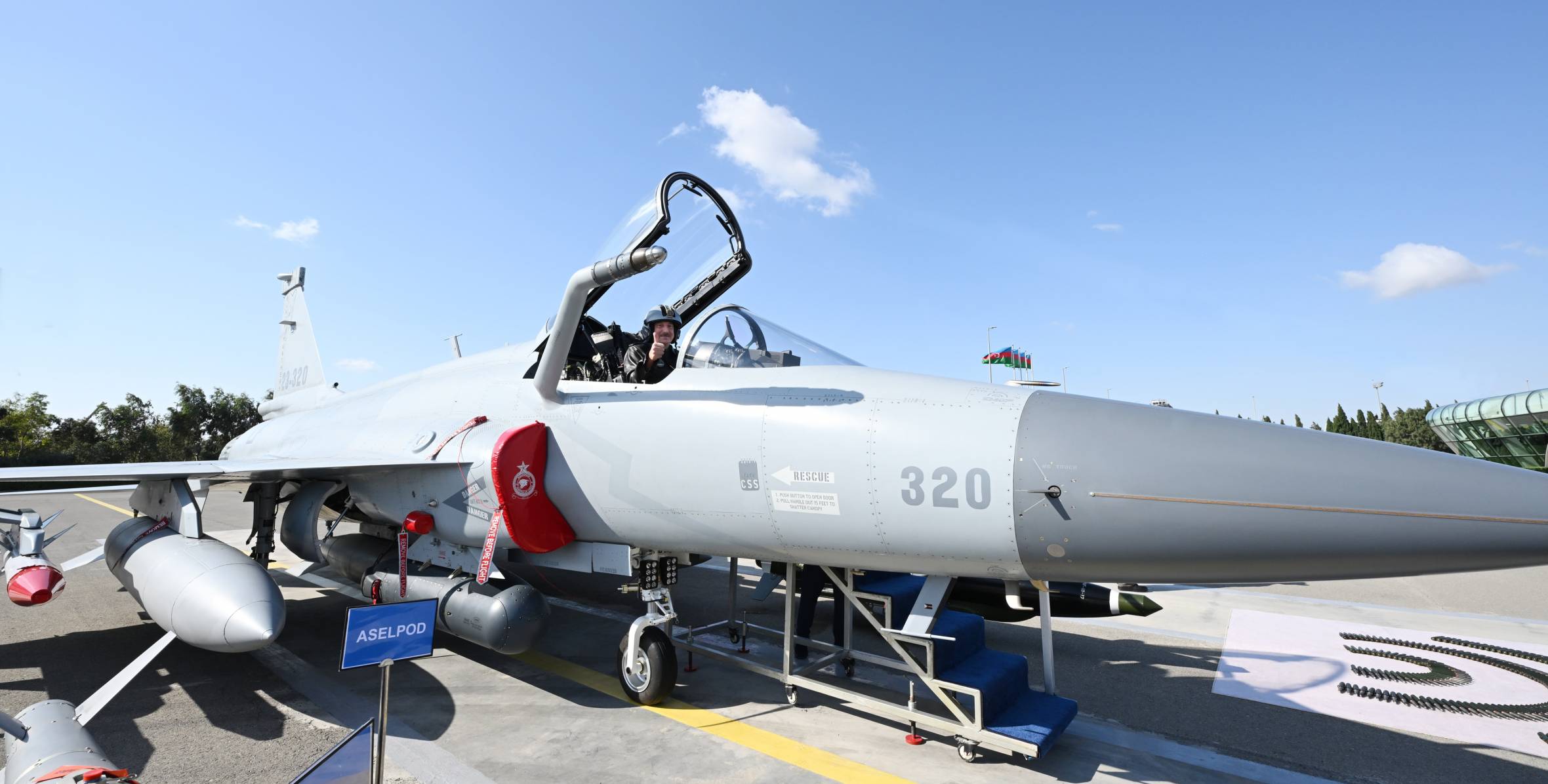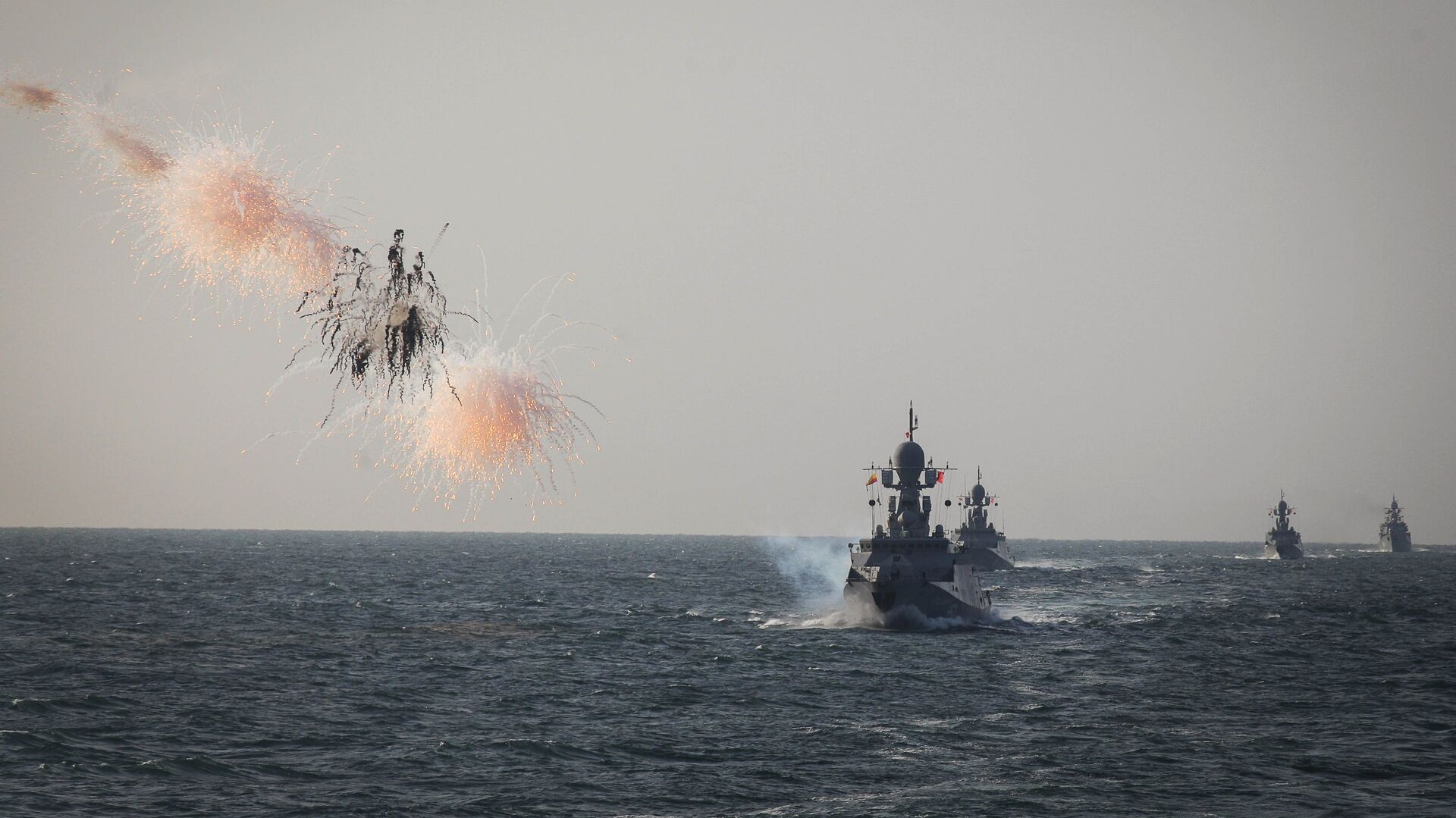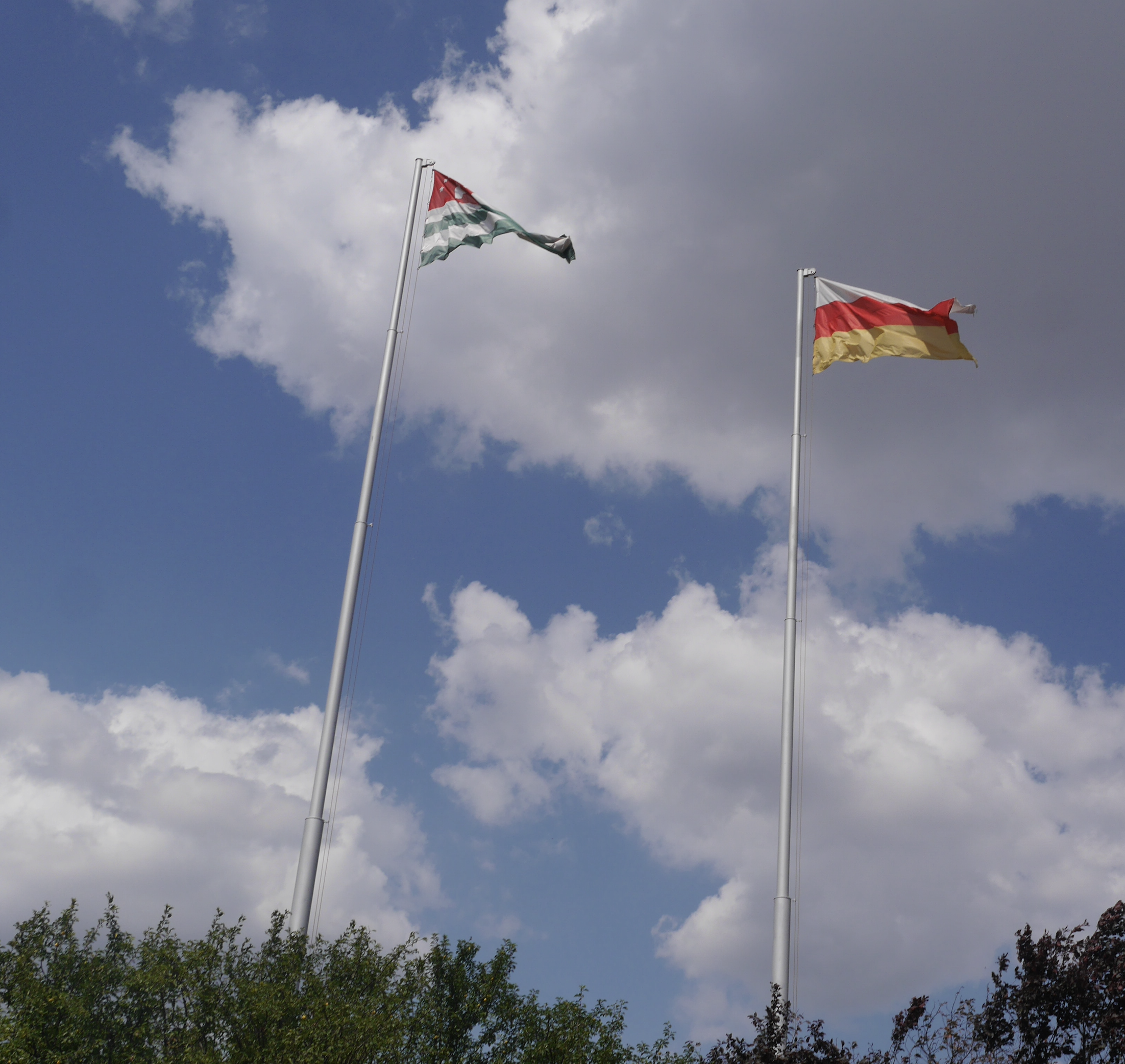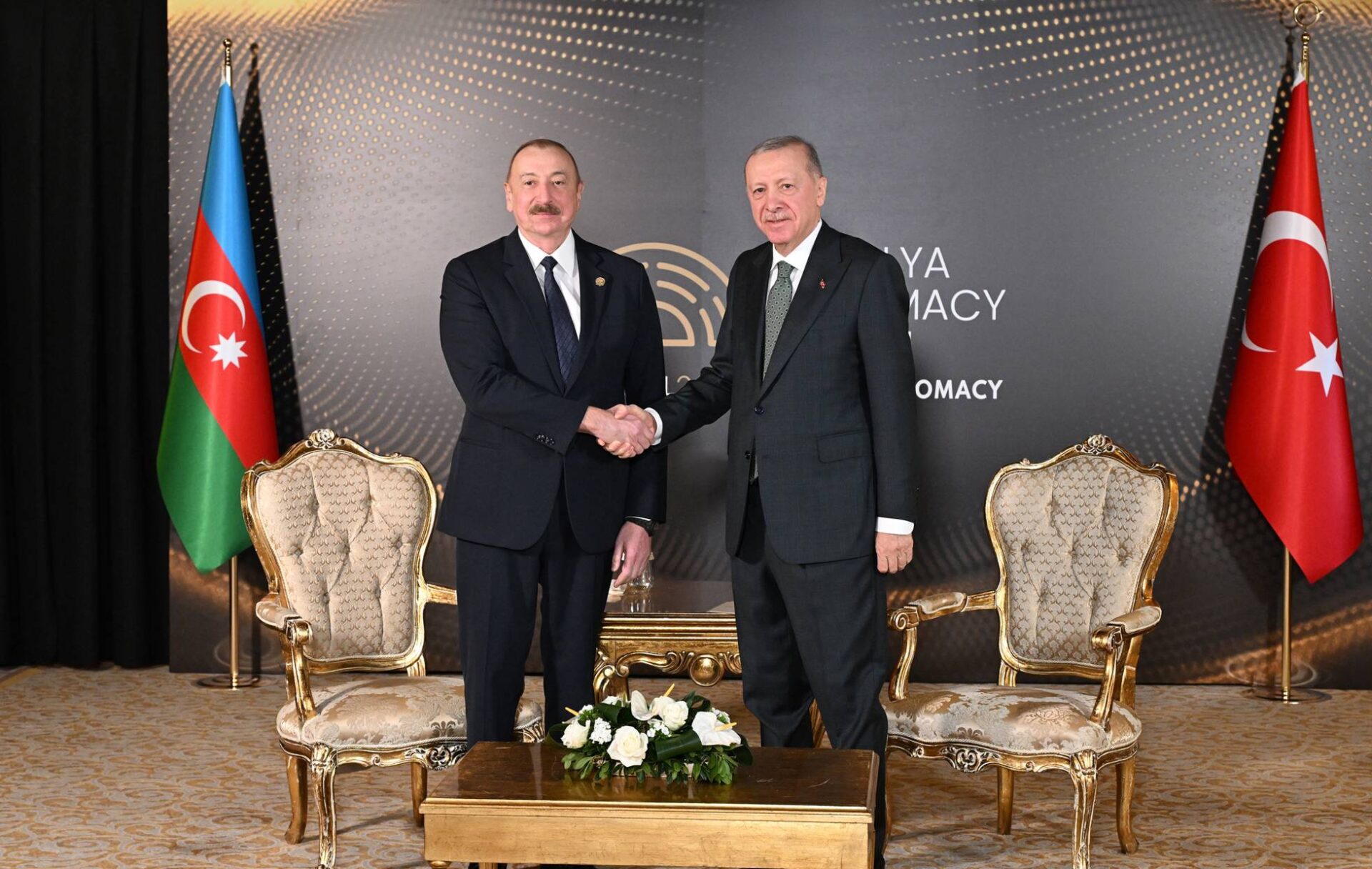
Pakistan Strengthens Azerbaijan’s Military Muscle
Pakistan Strengthens Azerbaijan’s Military Muscle
Executive Summary:
- Azerbaijan and Pakistan signed a $1.6 billion arms deal in September to supply Azerbaijan with the joint Pakistani-Chinese JF-17 Thunder Block III fighter jets, strengthening the military partnership between Islamabad and Baku.
- In the last several years, Baku has been diversifying its international partnerships, especially following Russia’s war in Ukraine. Partnering with Pakistan will create an opening for Azerbaijan to reach South Asian markets.
- As Azerbaijan aligns with Pakistan, Armenia is deepening military ties with India, potentially setting the stage for a rivalry between India and Pakistan in the South Caucasus.
On September 25, Azerbaijan disclosed that its air force had officially integrated Pakistan’s fourth-generation JF-17 Thunder Block III fighter jets. A statement released from the office of Azerbaijani President Ilham Aliyev highlighted, “These advanced, lightweight, all-weather aircraft, designed for both day and night operations, were developed as a joint venture between Pakistan Aeronautical Complex Kamra and Chengdu Aircraft Industry Corporation of China” (President of the Republic of Azerbaijan, September 25). Azerbaijan is Pakistan’s fourth foreign customer to acquire JF-17 aircraft after Myanmar, Nigeria, and Iraq (Eurasian Times, September 26). Azerbaijan has been working to diversify its military partnerships in the wake of Russia’s war against Ukraine, and its strengthening relationship with Pakistan will open more opportunities for Baku in South Asia and beyond.
Historically, Pakistan has enjoyed brotherly ties with Azerbaijan, which became independent in 1991. Pakistan was the second country to recognize Azerbaijan as an independent state after Türkiye. Additionally, Islamabad has internationally supported Baku against Yerevan over the Karabakh issue, and Azerbaijan in turn has supported Pakistani claims over Kashmir against India (see EDM, August 16, 2021, July 25). In 2014, the two nations signed a bilateral military cooperation agreement, and Pakistan trained almost a hundred military units in Azerbaijan. In 2021, Baku held combined military exercises with Türkiye and Pakistan (Diplomatic Insight, June 11, 2022). In 2017, Pakistan signed a trilateral agreement on regional cooperation with Azerbaijan and Türkiye and the three countries agreed to advance stability, security, and prosperity by developing additional trilateral partnerships. They stressed that “their territories shall not be used for activities against each other” (Anadolu Ajansı, November 30, 2017). Ankara and Islamabad signed the “trilateral Islamabad Declaration” in 2021 with Baku to show solidarity with Azerbaijan after the 2020 44-Day War in Karabakh against Armenia (RIAC, February 19; see EDM, September 12).
Just after the end of the 44-Day War, both Azerbaijan and Armenia felt the need to initiate extensive military modernization programs. While Azerbaijan turned to Pakistan, Armenia looked toward India for the purchase of arms and military equipment (see EDM, September 12; Eurasian Times, September 26). Yerevan has emerged as the largest importer of weapons from New Delhi in the past four years (see EDM, September 12).
While India is deepening military ties with Armenia, Pakistan is strengthening the military muscle of Azerbaijan. India and Pakistan could emerge as rivals in the South Caucasus, as both countries seem to have locked in a race for influence. India looks to Armenia for cooperation in bilateral and multilateral arrangements to undertake strategic connectivity projects in the South Caucasus, such as the January announcement from Tehran it was now allowing Armenia to use Iranian ports for the country’s trade with India (see EDM, January 23). Similarly, the Greek foreign minister proposed a platform for Armenia-Greece-France-India quadrilateral cooperation in March (ARMENPRESS, March 4). Multiple contracts for the purchase of arms and military equipment from India have in effect turned Armenia into India’s strategic ally in the region (see EDM, September 12).
In February, Azerbaijan signed a $1.6 billion deal with Pakistan to acquire a number of JF-17 Block III aircraft (Defence Blog, September 25). The deal package also covers pilot training and armaments for the fighter jet. China and Pakistan jointly developed the JF-17 and the Block III variant has superior agility, enhanced combat capabilities, and better stealth characteristics than the aircraft in Azerbaijan’s arsenal previously. The JF-17 Block III can carry electro-optical/infrared sensors and self-defense jammers on external pods. The aircraft has been designed to carry Chinese weapons on its seven hardpoints, including the PL-5 short-range air-to-air missile, LS-6 “Thunderstone” GPS-guided glide bombs, and YJ-12 supersonic and YJ-83 subsonic anti-ship missiles. With better avionics and active electronically scanned array (AESA) radar, the Block III variant is highly adaptable, as it can be loaded out with anti-ship, air-to-air, and air-to-surface missiles, as well as both guided and unguided bombs (Eurasian Times, September 26). The acquisition of JF-17 enhances the prospects for future China-Azerbaijan military collaboration, as China is the leading supplier of military equipment to Pakistan (Hindustan Times, April 26, 2022; Asia Times, March 12).
Aliyev said the “support extended by Pakistan would go a long way in consolidating the existing military cooperation, fostering closer defense collaboration and strengthening the warm brotherly ties between the two nations.” The induction of JF-17 Thunder Block III jets will strengthen Azerbaijan’s national security and further deepen its defense ties with Pakistan (Thenews.com.pk, September 26). Following its victory in the 44-Day War, Azerbaijan established a new security strategy that focuses around improved military preparedness, the superiority of its professional military units and tactics, and the use of innovative and advanced technology militarily. This reorientation has been bolstered by a series of bilateral and trilateral military drills among Azerbaijan, Pakistan, and Türkiye as well as bilateral and trilateral defense cooperation regarding defense production, technical education, and tactics (AZERTAC, April 23, 2021)
Russia was the main weapon supplier to Azerbaijan during the last decade (see EDM, March 28, 2018; Fact Investigation Platform, February 15, 2023). Following its victory against Armenia in 2020 and the signing of new gas contracts with European countries, Azerbaijan began redefining its relationship with Russia. Baku has not supported Moscow’s war against Ukraine and has been a substantial beneficiary of Russia’s setbacks (Radio Free Europe/Radio Liberty, April 23). The war has allowed Baku to diversify its military purchases, as it does not want to rely solely on Moscow. Russia’s war with Ukraine has left it in a position where it is not able to oppose or react to Azerbaijan’s move away from Moscow (Caliber.az, November 24, 2022).
The JF-17 jets are set to replace the existing fleet of Russian-made MiG-29 fighters in Azerbaijan’s air force. The Block-III variant outmatches the aircraft in use in the South Caucasus, such as the Russian MiG-29 and SU-25. Likewise, the JF-17 Block III can counter the Russian-made S-300 air defense system. The price of one JF-17 aircraft is estimated at $25 million. While the actual number of planes purchased was not disclosed, with a $1.6 billion deal, Azerbaijan is expected to acquire approximately 60 JF-17 jets, replacing its entire fleet. This deal also sets a record for Pakistan as the largest export of military equipment in the history of its military-industrial complex (Defence Blog, February 23).
The JF-17 Block III variant could prove a key asset for Azerbaijan’s air defense and is set to enhance Azerbaijan’s operational readiness amid aggravating regional security challenges (Defence Blog, September 25). Despite ongoing negotiations, tensions remain between Baku and Yerevan (see EDM, October 1). Both South Caucasian countries are enhancing their military capabilities to prepare for potential future hostilities. Additionally, Azerbaijan’s victory in the 44-Day War also demonstrated Russia’s failure to protect the regional status quo and uphold its Collective Security Treaty Organization (CSTO) commitments. This created a new security situation in the South Caucasus that raised concerns in surrounding states, including Iran. Tehran sees an assertive Azerbaijan in alliance with Türkiye and Israel as a threat to its interests in South Caucasus and elsewhere (New Eastern Europe, May 17, 2023).
Pakistan sees Azerbaijan as a strategic ally, and views future cooperation as essential to countering Indian diplomatic activity in the South Caucasus. The tense security situation in the South Caucasus has further consolidated trilateral relations among Azerbaijan, Pakistan, and Türkiye. Likewise, Azerbaijan is now the key player in the increasingly important energy transit corridor in the Black Sea, South Caucasus, and Europe, and there are also broader prospects for trans-regional energy cooperation with South Asia, especially with Pakistan (AZERTAC, April 23, 2021). For both Azerbaijan and Pakistan, this partnership will allow them to bolster their positions on the international stage.


